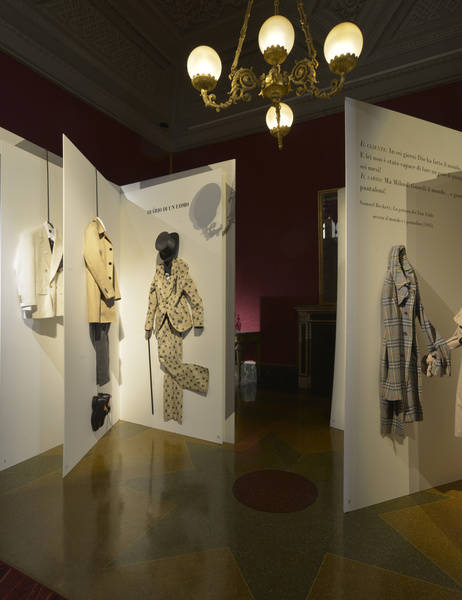30 Years of Men’s Fashion Through Pitti Uomo
Pitti Uomo, the world’s most important menswear event, just concluded its latest edition, which took place, as always, in Florence from June 11-14. This year, during the run of the biannual trade show’s 96th edition, Fondazione Pitti Immagine Discovery inaugurated an exhibition at the Museum of Costume and Fashion in Pitti Palace titled “A Short Novel on Men’s Fashion.”
Curated by fashion historian Olivier Saillard, it narrates a history of menswear by looking at the designers, outfits, trends and projects presented at the fair throughout the last 30 years and is dedicated to Marco Rivetti, who was the president of Pitti Immagine from 1987 to 1995.
Though Pitti Uomo actually began in 1972 as a trade fair, it soon evolved into the central international fashion event it is today and has seen the business and culture of men’s fashion grow and change along with it.
The world of men’s fashion has changed a great deal since the show welcomed Vivienne Westwood as its first-ever guest designer in 1990 and, as Saillard remarks in an interview with Vogue, at the time, “men’s fashion was very shiny, but still very small [...] Now, in the past 30 years, it has become a big market—not only an economic market, but an aesthetic market, too.”
The exhibition features 500 garnements from over 100 fashion houses that have presented their lines at Pitti since 1989 and reads like a giant book. Each room represents a chapter in the most significant and iconic menswear currents presented at Pitti and brings together contemporary designs and historical pieces from the museum’s collection, as well as portraits from the Pitti Palace art gallery.
In fact, Pitti Uomo is not simply a collection of runway shows, it has become a cultural appointment that brings together high-end and emerging designers, trade professionals and fashion enthusiasts. Here, one can admire the best and most daring street style, meet representatives from all sorts of brands, and even learn about the trends that are influencing more than just the way we dress but also the way we live and understand social and cultural concepts such as gender and masculinity.
By tracing the history of Pitti Uomo and the clothes presented there, the exhibition therefore also traces the evolution of the Italian and international fashion scene, which is itself often a reflection and even a precursor of broader social and cultural trends.
The show will run through September 29 but the initiative will then lead to the creation of a permanent menswear collection: the Men’s Fashion Collection of the Fondazione Discovery, which will be donated to the museum.






































i-Italy
Facebook
Google+
This work may not be reproduced, in whole or in part, without prior written permission.
Questo lavoro non può essere riprodotto, in tutto o in parte, senza permesso scritto.